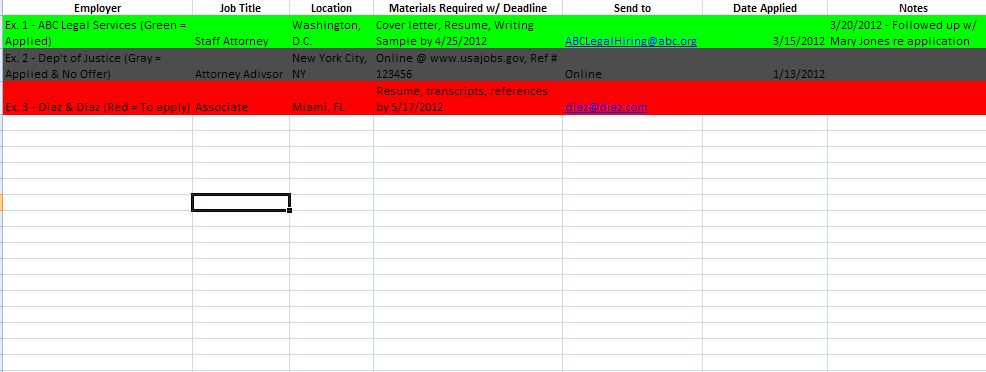by Kristen Pavón
A couple of weeks ago, a Twitter follower asked us if we had resources for law grads who want to start their own nonprofits.With more and more law grads getting creative about their job searches and career paths, it’s easy to understand why founding a nonprofit is one of the many alternatives to traditional law jobs. Well, I did my research and compiled 6 general tips on getting the wheels turning to start a nonprofit.
1. Assess yourself.
Figure out what issues you’re passionate about. It may be that the practice areas you were interested in are transferable for purposes of your nonprofit. Or, not. Either way, brainstorm.
Then, when you’ve written down everything you possibly can about your passions, do the same for your skills. What skills do you have that will be helpful in running your nonprofit? Maybe you were a fundraiser in a past life or a public relations guru — write it down.
2. Assess your community.
Take a look at nonprofits serving your community. What kinds of organizations are there a lot of? Are there organizations that could be doing more? Are there issues that are not being addressed at all? Talk to nonprofit leaders in your community and see what they’re saying.
3. Match up!
After you’ve done your research, it’s time to narrow your nonprofit organization’s focus. Match any needs you found in your community to your passions, interests, or skills.
4. Refine & Plan.
Work on refining what you want to accomplish, who you want to serve, and how you plan on delivering your services. You’re almost there when you can describe your organization’s goal, mission and services in one sentence.
5. Get that money, honey.
Fundraising and finding supporters will be the most important and toughest part of starting your nonprofit. You have to relentlessly reach out to people who may have an interest in supporting your organization’s work and develop relationships with community leaders that can lend credibility to your organization. Also, apply for grants!
6. Incorporate.
Here’s where your lawyering skills come in handy! Go here to find your state’s incorporation forms and information. Nonprofit board members are very important because they will be the champions for your organization. Choose wisely.
Other helpful links:
Society for Nonprofit Organizations
Free Management Library
7 Essentials Tips for Starting a Nonprofit
Nonprofit Incorporation
National Council of Nonprofits
Simple Nonprofit
Ladies Who Launch
I hope this was helpful! Do you have any other tips on starting your own nonprofit?
 aryland’s College of Education, just outside of Washington, DC.
aryland’s College of Education, just outside of Washington, DC.



